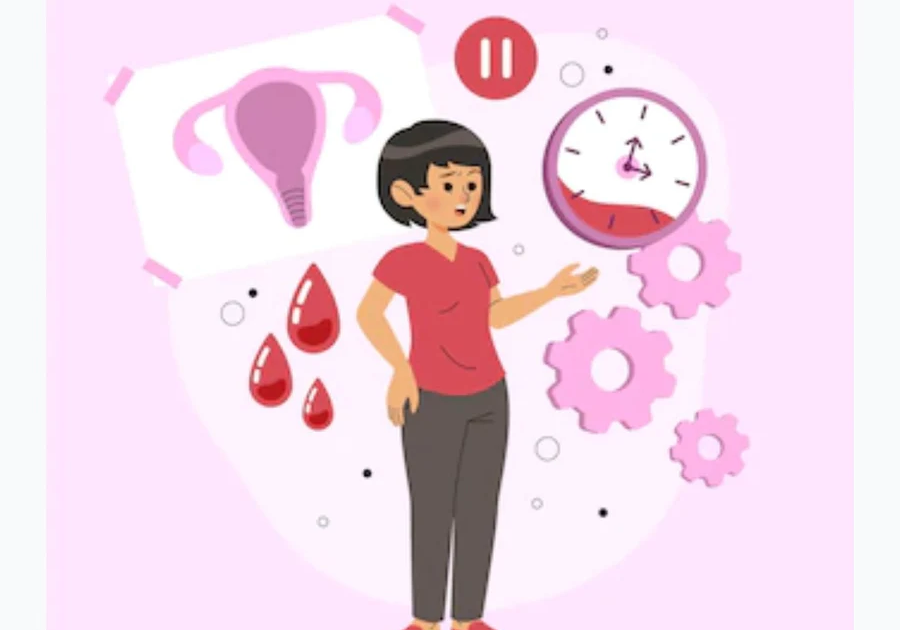PCOS is a common disorder involving hormones that affects women in their reproductive years. It is characterized by irregular periods, excess androgen production, and the formation of cysts on the ovaries. PCOS is often misdiagnosed because its symptoms can be similar to those of other conditions. In this post, we will discuss some of the disorders that are commonly misdiagnosed as PCOS.
- Endometriosis
One disorder that is frequently misdiagnosed as PCOS is endometriosis. Endometriosis is a condition in which the tissue that lines the uterus (the endometrium) grows outside of the uterus, often on the ovaries, fallopian tubes, or other pelvic organs. Like PCOS, endometriosis can cause irregular periods, pain during sex, and fertility issues.
However, endometriosis is not caused by hormonal imbalances and does not involve the development of cysts on the ovaries. A proper diagnosis of endometriosis typically requires a laparoscopy, in which a small camera is inserted through a small incision in the abdomen to view the internal organs.
- Gland Dysfunction
Another disorder that is sometimes mistaken for PCOS is adrenal gland dysfunction. The adrenal glands are small organs located on top of the kidneys that produce hormones such as cortisol and testosterone. Adrenal gland dysfunction can cause symptoms similar to those of PCOS, including irregular periods, excessive hair growth, and acne.
Adrenal gland dysfunction is not caused by a hormonal imbalance in the ovaries, and it does not involve the formation of cysts on the ovaries. A diagnosis of adrenal gland dysfunction may be made through blood tests and imaging studies of the adrenal glands.
- Thyroid Dysfunction
A third disorder that is sometimes misdiagnosed as PCOS is thyroid dysfunction. The thyroid gland is a small organ located in the neck that produces hormones that help control the body’s metabolic processes. Hypothyroidism, or an underactive thyroid, can cause symptoms such as fatigue, weight gain, and irregular periods, which can be similar to those of PCOS.
Hypothyroidism is not caused by a hormonal imbalance in the ovaries and does not involve the formation of cysts on the ovaries. A diagnosis of hypothyroidism can be made through blood tests that measure thyroid hormone levels.
- Insulin resistance
Insulin resistance and polycystic ovary syndrome (PCOS) are two separate medical conditions that can have some similar symptoms. Both conditions can cause irregular periods, weight gain, and problems with fertility, which can make it difficult to differentiate between the two. In addition, both insulin resistance and PCOS are more common in women who are overweight or obese, which can also contribute to the difficulty in diagnosis.
Diagnosing insulin resistance or PCOS can be challenging because there is no single test that can definitively confirm either condition. Instead, doctors will typically use a combination of tests and assessments to make a diagnosis, including blood tests to measure hormone levels and glucose tolerance tests to measure how well the body is able to process sugar. In some cases, a diagnosis may be based on the presence of certain symptoms, such as irregular periods or excess body hair, in combination with other factors.
- Cushing’s syndrome
Cushing’s syndrome and polycystic ovary syndrome (PCOS) are two separate medical conditions that can have some similar symptoms. Both conditions can cause irregular periods, weight gain, and problems with fertility, which can make it difficult to differentiate between the two. In addition, both Cushing’s syndrome and PCOS are more common in women who are overweight or obese, which can also contribute to the difficulty in diagnosis.
Diagnosing Cushing’s syndrome or PCOS can be challenging because there is no single test that can definitively confirm either condition. Instead, doctors will typically use a combination of tests and assessments to make a diagnosis, including blood tests to measure hormone levels and imaging tests to visualize the adrenal glands or ovaries. In some cases, a diagnosis may be based on the presence of certain symptoms, such as irregular periods or excess body hair, in combination with other factors.
It is important to note that these disorders are not the only ones that can be misdiagnosed as PCOS. Other conditions that may be mistaken for PCOS include insulin resistance, Cushing’s syndrome, and prolactinoma (a benign tumor of the pituitary gland). It is important to seek a proper diagnosis from a healthcare provider if you are experiencing symptoms that may be related to PCOS or any other disorder.
The Bottom Line
In conclusion, PCOS is a common hormonal disorder that affects women of reproductive age. However, it can be misdiagnosed as a result of its similarity to other disorders such as endometriosis, adrenal gland dysfunction, and thyroid dysfunction. It is important to seek a proper diagnosis from a healthcare provider to ensure that you receive the most appropriate treatment for your specific condition.




